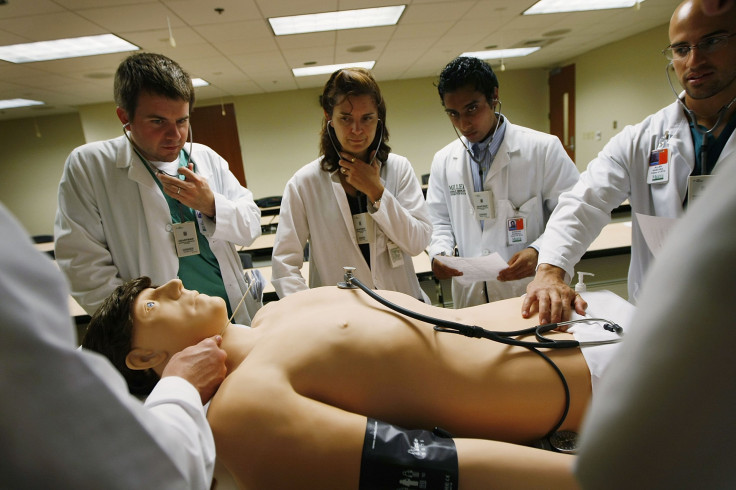How To Be A Doctor: In Medical School, Dissecting The Human Body 'Can Teach The Living'


This question originally appeared on Quora. Answer by Bijaya Biswal.
"Only the dead can teach the living", my professor said on the first day of my medical school, and then the class bell had rung and relieved us all of the long anaesthetizing lecture. However what we experienced after lunch, made us regret having lunch.
The first dissection class was like a fear-factor challenge for us. For tearing open a thick layer of skin wasn't as easy as those gashes on our knees or mouth cuts we regularly inflict on us. It was more like slashing the bark of a tree. And the formalin smell was so smothering and nauseating that I seemed to smell formalin for the rest of the month wherever I went. Cola smelt of formalin, sweat smelt of formalin, roses and perfumes smelt of formalin. As if the stinging smell had adhered to the walls of my nostrils.
And more bewildering was the fact that all around me lay corpses, alien and ghastly, with limbs nailed to the planks, waiting to open up to us. Eyes half open, dry and filmy as if tired of all the atrocities they saw when still alive. Tongues pale and flushed, disappointed by the taste of life. Shoulders rigid, as if benumbed by carrying the weight of responsibilities.
Our cadaver was a woman in her mid-thirties. Her ear-piercings and remnants of red-nail polish spoke many stories about the life she had lived, which had ended up so soon. Maybe a shaky marriage? Maybe the unpredictable tricks of the fate. But all those stories seemed less mesmerizing, when we split open her chest with scalpels. For the first time, the scalpel felt mightier than a sword.
Tearing brutally into the skin and muscles opened before us a wonderfully designed machine a human could have never re-made. We were amazed to see how amazingly evolution carved out a conscious and independent human, from less fortunate species. The lungs and heart were safely protected with shock absorbing layers, as if nature knew how prone man would be to accidents and jerks. The vagina was so small that it was astounding to imagine it could be so elastic that a baby could come out. The size of the uterus didn't at all suggest to have room enough for a living creature to live and move, the stomach so well-shaped that the pancreas and intestine resided with pleasure next to it. The arteries and nerves so artistically networked throughout this huge body that I was embarrassed I couldn't even keep my earphones in my pocket without entangling the wires in a way that it could act like fool-proof shoelaces. And when I had cut the brain apart, I had to take some time off only to digest it had so many little areas like departments in an office building, which handled everything from vision to speech.
How did evolution be so precisely innovative? To locate two bones in my forearm instead of one so I could pronate and supinate successfully? To make sure my tongue had attachments that won't make me swallow the tongue itself.? To enable production of blood from bones? Phew.
Only opening up a human body can tell you about what an engineering expert nature can be. But then, because no one is an absolute expert, nature couldn't do much to maintain life against the more amazingly engineered viruses and bacteria. And thus, doctors were raised. Not merely to study life, but to justify it.
Seeing death so clearly lying before me, I realized how life is like a dark well. You never know how deep it is, you never know what's in the end.
All one can do, is drinking from life every moment, till one is full to the throat.
P.S — Also, soon I got used to the formalin smell. For its all my clothes smell of now.
© Copyright IBTimes 2025. All rights reserved.





















